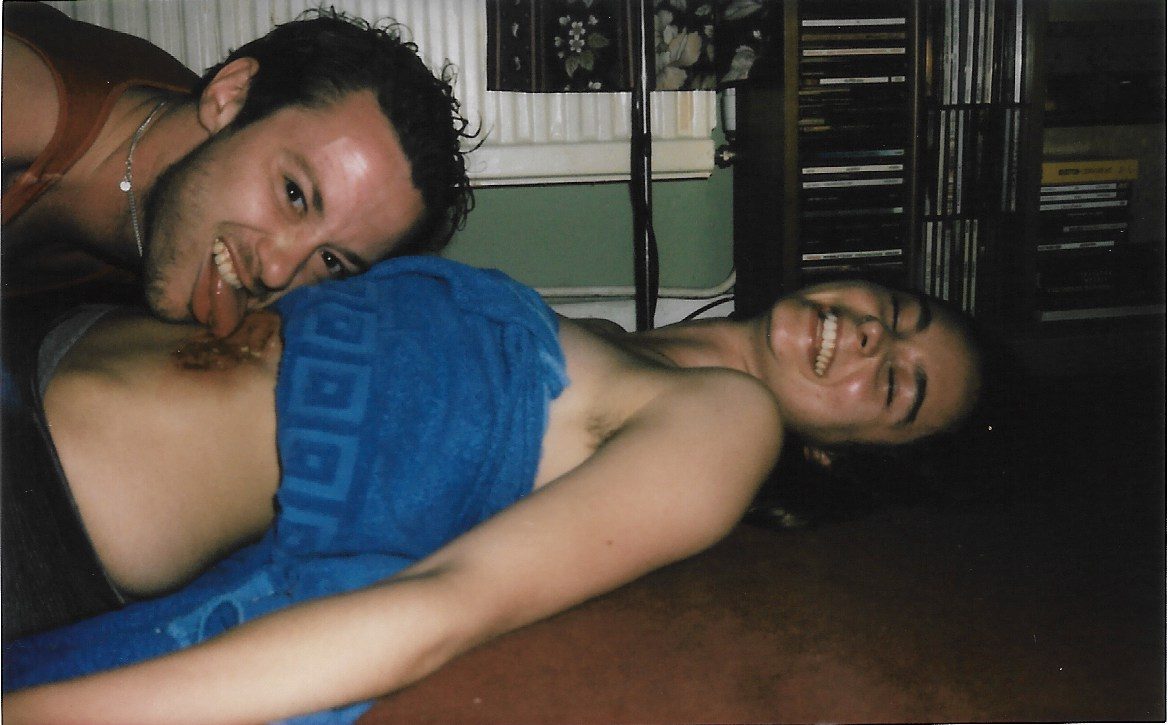
Sitting across from Joseph Quinn and Saura Lightfoot-Leon, their chemistry is unquestionable. Each actor, co-starring together in Luna Carmoon’s highly anticipated Hoard, carries an energy about them that is both singular but also perfectly complementary to one another. The Netherlands-born Lightfoot-Leon is serene and sentimental, considering every word carefully before it escapes her mouth, while Quinn, though no doubt contemplative and articulate in his own right, glows with playfulness, prefacing even his most insightful musings with warm-natured jest.
The 30 year-old, who first turned heads after his breakout role in Netflix’s Stranger Things, talks about Saura like a big brother swelling with pride at the achievements of a younger sibling. She embraces the little sister role in kind, responding to her co-star’s praise with an embarrassed but quietly delighted beam.
In the eighties and nineties-set Hoard—which is hitting UK cinemas this week after a successful festival run last year—the duo’s relationship is far less nourishing. Lightfoot-Leon plays Maria, a teenage highschooler living a peaceful existence in her Downham estate with caring foster mother (Hayley Squires) and ride-or-die best friend Laraib (Deba Hekmat). Her summer is upended with the arrival of her late mother’s ashes, triggering long-suppressed grief that manifests itself in increasingly hallucinatory ways. At around the same time, she meets the much older Michael (Quinn), an ex-foster child in whom she finds a kindred spirit, the two embarking on a series of misadventures that is at once therapeutic and, perhaps irreversibly, destructive.
A RABBIT’S FOOT sat down with Quinn and Lightfoot-Leon to discuss their roles in Hoard, the complex nature of Michael and Maria’s relationship, and the unconventional ways Carmoon immersed the cast and crew into the sensory world we see in the film.
Luke Georgiades: Were you surprised by the amazing reception you received at the Venice Film Festival?
Saura Lightfoot-Leon: I was completely overwhelmed. I felt like I was in a daydream, and I felt lucky to have Luna and Joe on either side of me. It was really emotional. It felt right though. The film belonged there, in a place that feels as celebratory of cinema as the Biennale does.
Joseph Quinn: I remember when we were filming thinking ‘the Venetians are going to go mad for this’ [laughs]. No, you can never have expectations in this thing, once you start having expectations you’re setting yourself up pretty quickly for disappointment. You’ll end up driving yourself mad, and start saying ‘oh, what are we doing here?’ Little moments of doubt, but you have to remove yourself from it all. You have to be present. But I think people have found something complex and challenging in Luna’s writing and how personal and vulnerable it is, while also being alarming. It’s a remarkable discovery of an incredible actor in Saura who leads this film with effortless grace—
SL: Stop!
JQ: —So I think it’s carrying a lot of different things. It’s two bold new voices in Luna and Saura, a fantastic production team and some old-timers, me and Hayley [Squires], doing our thing.
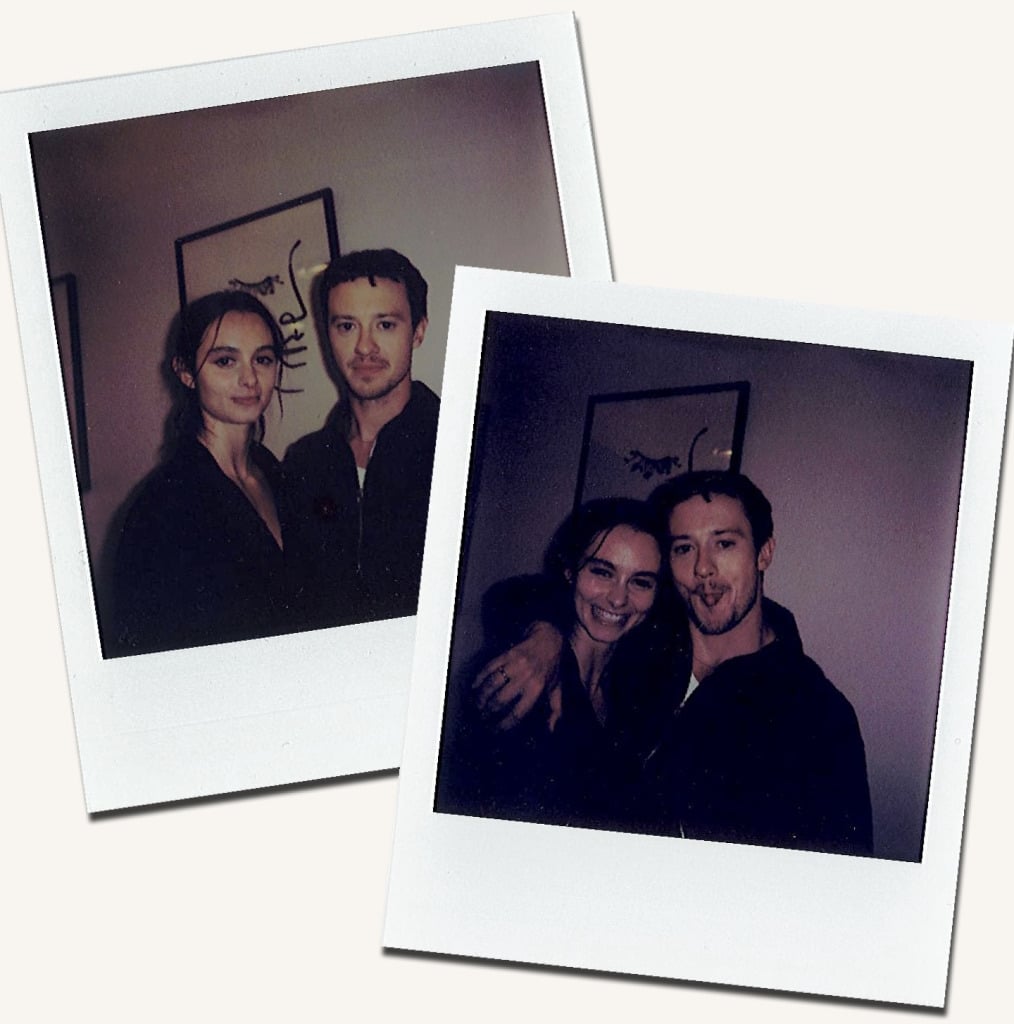
LG: What was the first thing Luna said to you about the movie or its themes that made it all click for you?
JQ: I don’t think that ever happened really [laughs], I just became increasingly aware of Luna’s vernacular and how it would change things in my performance. I never thought there was a target we were aiming to hit, it was more about being open to her suggestions and trusting her direction. Filming Hoard felt like landing on the beaches of Normandy—you find Luna, you follow her, you’ll feel safe. Someone that resolute, you would follow them anywhere. But I didn’t always understand what was going on in the film. Not until much later.
SL: It wasn’t verbal. There was an encouragement she would communicate through her laughter at my performance, her surprise at some of my choices, that made me go ‘Oh, I think there’s something here…what happens if I go further?’ She would egg me on in a really playful way, and she trusted me to take the characters and scenarios to their extremes, which is what the character is like: Maria goes to extremes, but she doesn’t feel like they’re extremes, they’re her reality. The deeper she goes into the rabbit hole of hoarding, the closer she gets to something which is surreal, and perhaps supernatural.
LG: Luna is a wealth of cinematic knowledge—what were some of the films that she showed you and how did that influence how you approached your respective roles?
SL: Possession. Isabelle Adjani. That’s the main one I want to talk about. She’s so beautiful, and fragile, but so strong. It’s one of the wildest performances I’ve ever seen. It blew my mind.
JQ: She spoke a lot about Nicolas Roeg, Joseph Losey, Alan Clarke…and a bunch of other directors whose names I can’t even pronounce. The moment you speak to her you become incredibly aware of how cinematically literate she is, which, personally speaking, makes me feel a bit stupid [laughs]. The references are so varied and brilliant that it was a total education working with her.
SL: But she doesn’t over-display it, it’s just a part of her. It’s an instinct.
LG: Joe, what kind of nutrients does an independent, smaller production like this give you that maybe differs from the kind you get from big budget franchise work like Stranger Things?
JQ: Nutrients is a lovely way of phrasing it. There’s virtue in both experiences, of being part of something that has a fanbase and more people, inherently, are going to watch, like Stranger Things, but you can be aware of all the money that’s involved and that can be stifling at times. The more money that’s involved, the less inclined people are to take risks. Making Hoard was nourishing because it was collaborating with voices that I found to be courageous, and that comes from risk-taking. Luna has something to say, and Saura, when she’s acting, has something to say. That’s a rare thing, and a lovely thing to be around.
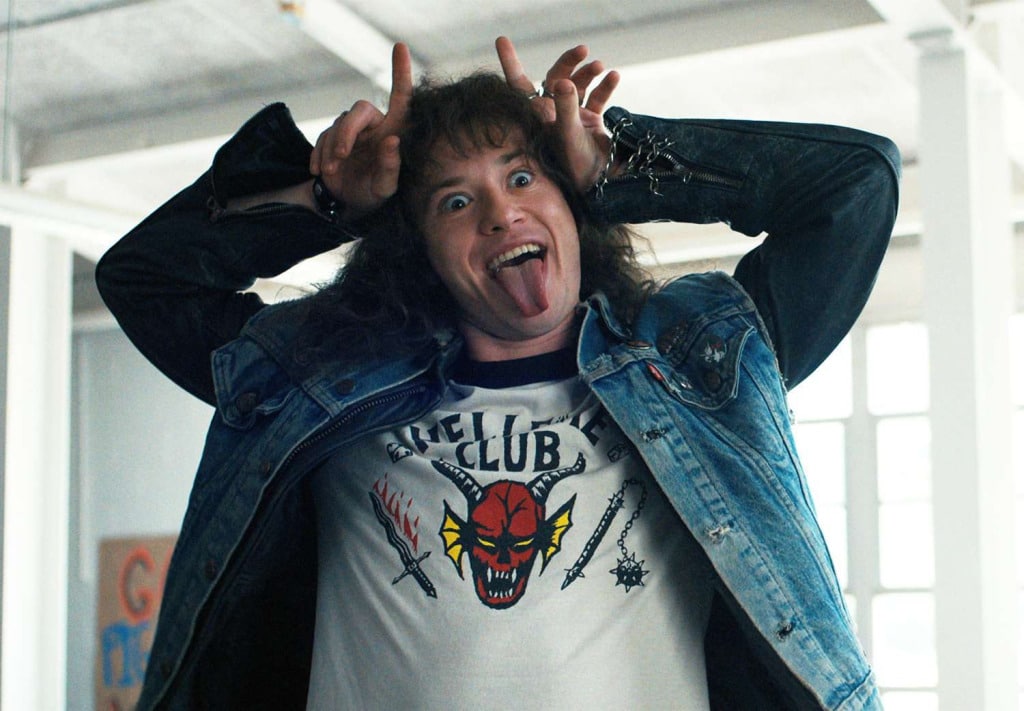
LG: Saura, did you feel pressure to take on a character that in some ways was an avatar for Luna’s personal history?
SL: I did, but I didn’t want to show it. I didn’t tell Luna I felt pressure. I spent a lot of time with her though, and I got to know very well what this film meant for her, and she got to know what this meant to me. We went hand-in-hand together, with it, and it stopped feeling like a weight on my shoulders and started to feel like a collaboration. It was a gift, but it certainly scared me at first. I was shitting my pants. But I trusted that Luna chose me for a reason.
LG: How much personal history were you able to bring to the character?
SL: I lost my grandmother not too long before the film came out, and the grief was fresh for me. I dedicated my performance in the film to her, and I wish she could have seen it. That held personal weight for me. But I was also able to take inspiration from my environment: eating different foods, wearing clothes, being around people. Spaces are a big thing for me. Wherever I am, I start to mould into it, and feed off of it, and it provides me a lot. Everything that surrounds us is there for us to use—it exists and it’s alive. That’s what it felt like—every moment on set was like an adventure.
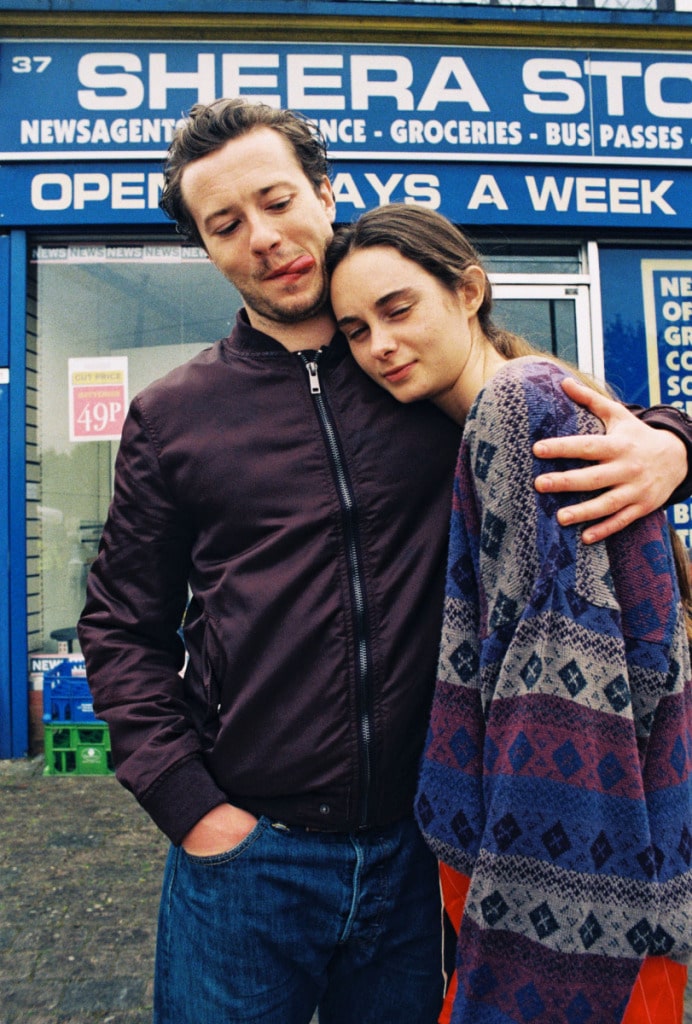
LG: The relationship between both of your characters is such a complex aspect of this movie. Joseph, what kind of relationship do you have with Michael?
JQ: Luna’s script doesn’t judge her characters, even when their behaviour is objectively deplorable. Michael cheats on his pregnant girlfriend with someone significantly younger than him. There’s a lot of reasons why we should detest him. It’s that fucking cliché…that as an actor I have to “not judge him.” He’s a product of a difficult upbringing, which can lead to self-destructive behaviour. He’s not sound of mind in the film, which is a charitable way of looking at it. And he sees something of a kindred spirit in Maria. There’s a familiar wound that he sees in her. He finds solace in recognising that wound in another person, and he runs towards that, at the abandon of everything else in his life. It’s a testament to Luna’s articulacy as a filmmaker, and her not banging those drums too loudly, it’s just there, and you watch these two characters smell each other out. From my perspective, Michael thinks Maria is going to save him. But, as always becomes evident in this life, no one else can solve your problems, and you can’t solve theirs either. The realisation of that regrettable fact of life is a devastating blow for him. But it doesn’t excuse him.
SL: The relationship between them is ugly. It leaves me feeling really uncomfortable, and it makes me feel a great deal of pain. Like Joe said, people aren’t going to save you, but you end up finding a companion, and then they hurt you, and your whole world has been turned upside down, and sometimes you’re the one on the receiving end and other times you’re the one doing the hurting. That’s life. And making this film was a huge life lesson for me in that regard. When we were filming, sometimes I was aware of that and other times I was blissfully unaware. To play that relationship was a breath of fresh air and also terrifying. Because it was real. And real ain’t always pretty.
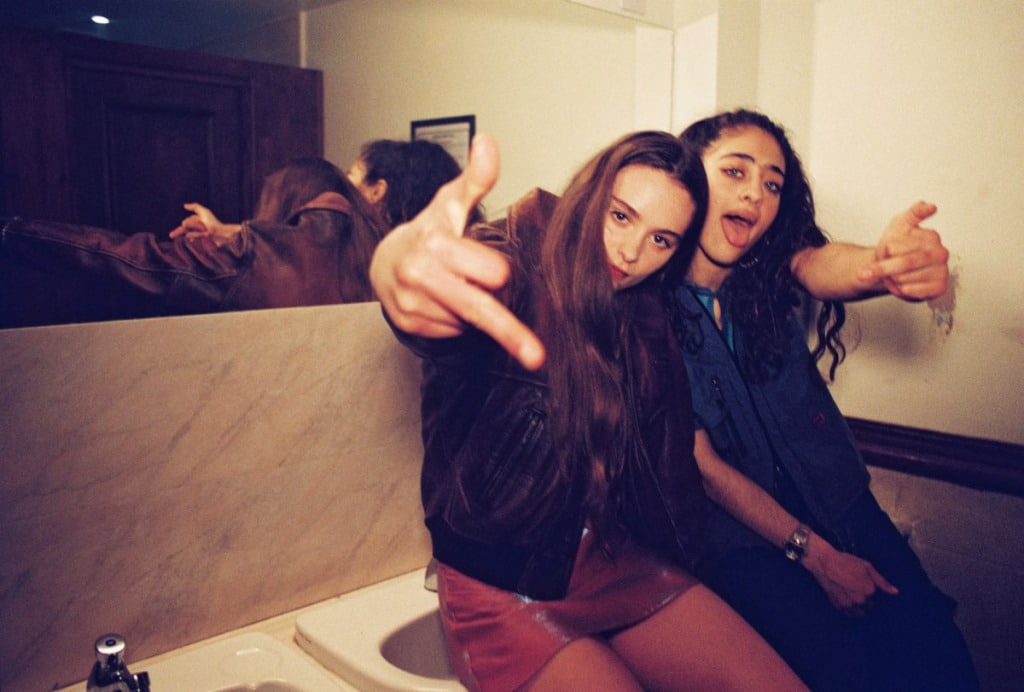
LG: Saura, your parents are both choreographers. Is your acting informed by that in a way, be it consciously or otherwise?
JQ: She can’t stop dancing!
SL: I cannot stop! It’s something that I haven’t always wanted to be a part of my life, but it’s also been a massive gift that I’ll always carry with me. I grew up in rehearsal rooms, I watched people working ever since I came out of the womb. I was on stage before I was born. So it was a unique experience, and I’ve resented it at times. But I’m very physical, I’m very touch-base, and it was useful for Maria, because there’s an animalistic quality to her. The first time you meet her she’s swinging around like a chimpanzee, that’s how she exists in her world, and so I watched animals in person and online, I listened to music, I looked at art, and a bunch of other things to inform my approach. I was bouncing off the walls in that house.
LG: What makes you say you were reluctant at some points to accept that influence from your parents?
SL: I always saw acting as a terrifying challenge that I knew nothing about, when in reality I knew a lot more than I thought I did, because I had been around creatives my entire life. Every art form is informed by every other artform. There’s no one way to do something, and the more information you can gather from what’s around you will make your work richer. But for a while I felt like I was cheating, because I had these things, these influences, for free. For a long time I thought that dance was a separate part of me and my persona, but recently I’ve learnt to become comfortable with my body and to find my characters through that.
LG: You’ve mentioned music was an important part of this process for you. If someone asked you to give them a song, album, or artist that you think would help them understand Maria better, what would it be?
SL: The Stylistics. I won’t say any more than that. It’s quite personal. But it’s a range.
LG: I asked Luna about the sperm-blood aftershave that she sprayed around the set—I would love to know both your perspectives on that story. Joe, she said you got her in trouble after an interview you did with the BBC.
JQ: Well they made it out like I said she was squirting semen everywhere [laughs] which simply wasn’t the case. It was a scent she created. It was the essence of blood, semen and sweat. She would spray it around the set to evoke this really visceral gut feeling through smell. She’s so good at using smell in the film. But we weren’t, like, dodging sperm.
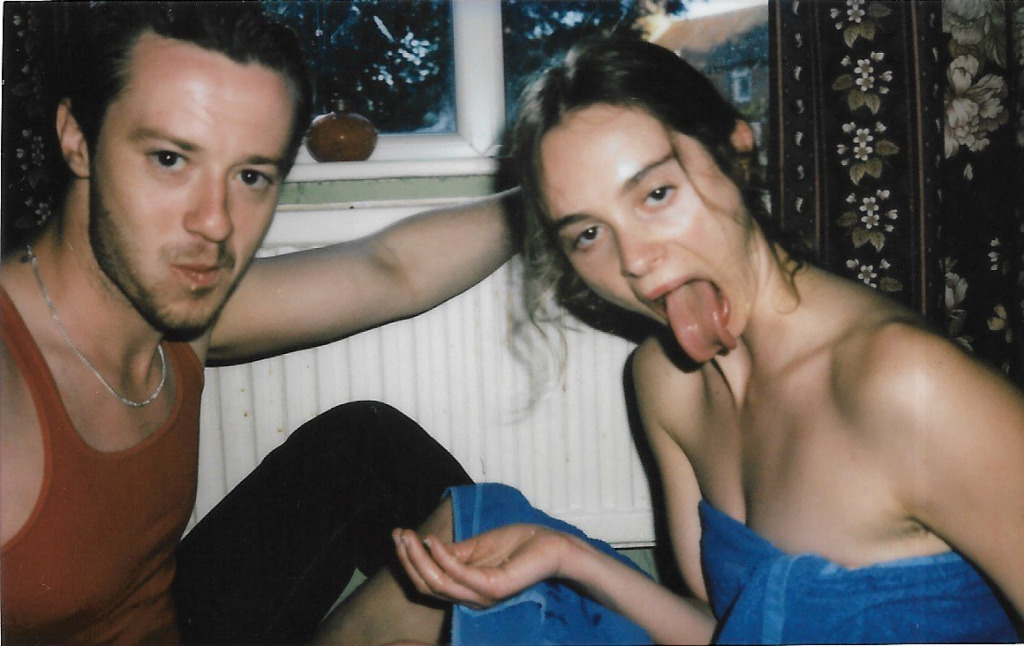
LG: Who was the first person to clock on to that?
SL: I think I was! I’m big on smells—smells are important, and I feel a creative rush when I’m in an environment that combines all the sensory experiences. I think that was Luna’s hope, too. When I found out I wasn’t even shocked, I just thought, ‘that’s genius. What a great idea.’ I quite liked it—the scent of pain and suffering [laughs].
LG: What was it like for you to shoot the more gross-out moments in the movie? I know you used real spit during the handshake scene. Was that improvisational?
JQ: It was on the page. We had to do some popping candy stuff, and had some spit to spare, and we decided to commit to it. It was great fun, and I can’t stress enough that you don’t get access to this kind of material very often. So when you do, you go for it. It was great fun. We enjoyed relishing in how odd this script was.
SL: I couldn’t wait to shoot those scenes. I was dying to shoot them, because how often are you able to tune in to that kind of absurdity in real life? Almost never. There were days where Luna would have an idea on the fly, something disgusting, and we were all in, everytime.
JQ: And then she would be like ‘Ah-ha!’ [impersonates Luna spraying sperm on set].
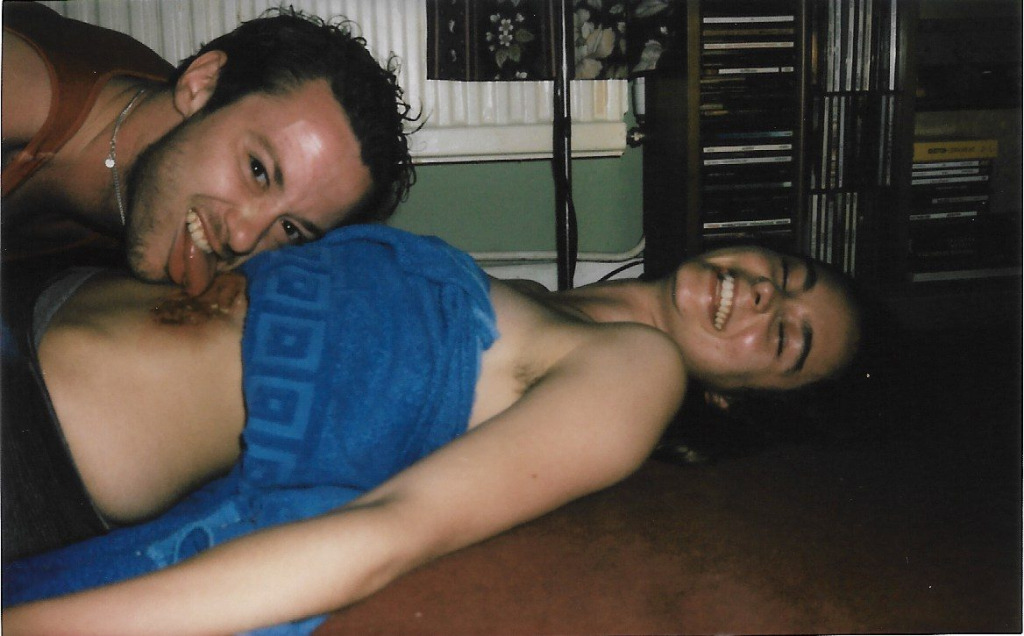
LG: What is it like for you to sit in the audience and watch this unique and strange vision come to life for a fresh audience?
SL: In Venice it was dead silent, because the jargon maybe didn’t land as fluently as it would in the UK, but the weighty elements of the film hit way more because of that. I was worried that the language barrier would be a hindrance but instead it elevated the shock factor of those moments. And then being at the BFI brought a really cosy familiarity that was different but equally exhilarating, because we knew all the jokes and cultural references would hit in their intended way. We shot this film a few years ago now, so it’s strange to talk about it now this far removed from the process. A lot has changed. For me, it was a big deal. It left me hopeless, and hopeful, and with a lot of inspiration. It’s an experience I’m going to keep in my pocket for a long time.
JQ: I continue to feel very encouraged that people are responding to a film as inventive and non-conformist at this one. Hoard is a big swing—a statement of intent, and I’m delighted to see the industry rallying around Luna and noticing what a unique and necessary voice she is within contemporary British cinema. What was it like? It was a dream.
Hoard is out in UK cinemas on May 17th.





